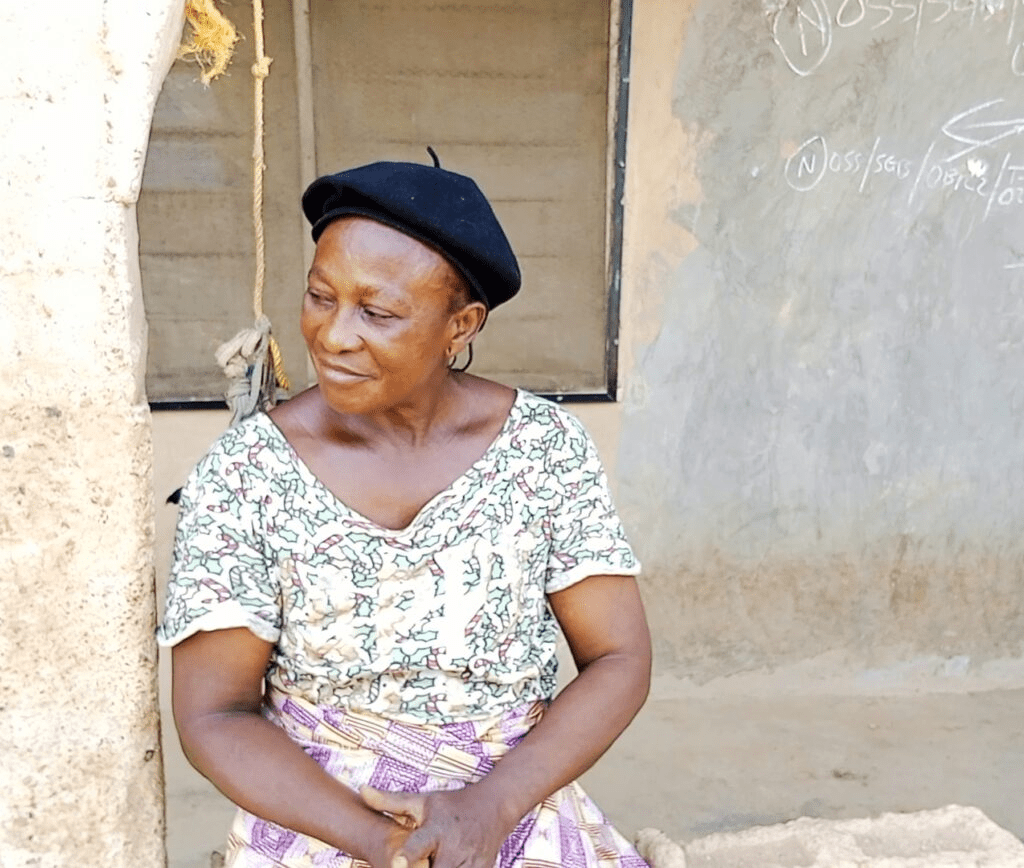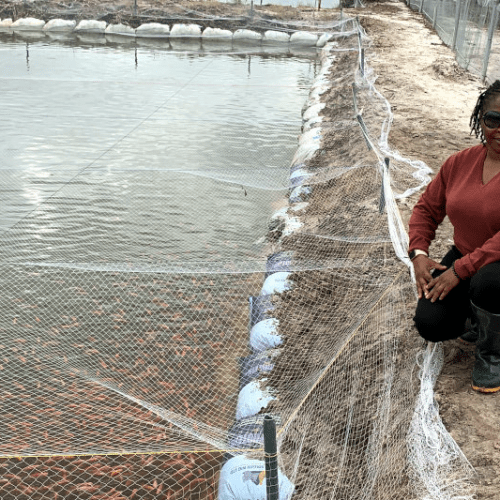The activities of illegal miners have damaged the Osun River and scores of families making a living from farming around it.
ixteen-year-old Samuel Agboola has a passion for higher education but something is hindering his burning aspiration: His mother’s vegetable farm which was used to fund his education has crumbled.
Five years ago, his mother, Yeyeoni Agboola, had a vegetable farm by the riverbank at railway line in Alekuwodo area of Osogbo, Osun State, but had to switch to fruit selling when the river became polluted.
A decade after the death of her husband, Mrs Agboola ventured into vegetable farming to cater for her children and their education. She said fortune favoured her until the river became contaminated. Samuel, her last child, dropped out of secondary school recently.
“With the help of God, farming, and a few other things, I built my first house,” she said of how vegetable farming had paid her bills in the past.
To many women in this community, vegetable farming is easy, timely and highly profitable.
“… this business is lucrative, many just look at us because we look dirty, but little did they know about the profit we make in selling vegetables ” Deborah Adedokun, one of the women vegetable farmers said.
The good days continued until the advent of the ‘gold rush.’ The land these women till to provide for their family recently lost its value due to a ‘gold rush’ in Osun State.

The illegal mining of gold in the state, including around the riverbank, polluted the river, the source of clean water and irrigation for the women farmers. As the river became polluted, farmers’ harvests reduced and many including Mrs Agboola had to abandon farming.

Samuel’s education and his mother’s vegetable farming business are just a few affected by this pollution caused by illegal mining which seems unstoppable in Osun.
Fish farming affected
Before mining polluted the river, many people — including foreign and local tourists — benefitted from the Osun River. But for many, that is no longer the case.
“The mining is the main thing that contaminates the river and nothing else,” said Toyin Aladeitan, a widow who used to sell fried fish in the community.
Mrs Aladeitan also built a house from her petty fish trading. Her children would go fishing in the river for their mum to cook and hawk. This was their routine until the river got polluted.

Today, Mrs Aladeitan’s petty fish business barely exists since the number of fish in the river reduced due to the pollution and the widow cannot afford imported fish sold in cold rooms.
“We hardly catch fish in the river, this is what I caught in the river since yesterday night,” 14-year-old Kehinde Aladeitan, one of the widow’s sons, said as he showed this reporter a few fishes in a bucket.
Osun River pollution fuelling poverty
The vegetable farming business provided income for many women in the community, including Samuel’s mother.
But gold mining has polluted the river through which the vegetables grow, resulting in the discolouration of the water and the deterioration of its ecosystem. This pollution does not only affect the women’s livelihoods but also the schooling of children like Samuel.
He dropped out of school in 2020, while he was still in the Senior Secondary School, SS1, due to financial constraints.
Samuel told these reporters he just wanted to go to school.
“I did JAMB this year myself, but I have not been able to check it.”
The teenager said he had to find another means to fund his education since his mother’s source of income could not help him further.
“I used to have money when I was doing the logistics (popularly called dispatch drivers) and from there with the help of my brother too, I did my WAEC,” he said proudly. The West Africa Examination Council (WAEC) conducts the secondary school leaving examination.
As fish became scarce in the river and vegetable growth became stunted, the sources of income for the locals disappeared, forcing them to seek alternative means to make ends meet. The locals said they had been forced to adjust their food routine.
“We eat only once per day,” Samuel, the last of five children, said.
Another widow around the railway, Senior Oluwanifise, stopped farming early last year when she noticed changes in her vegetables.
“I stopped when I noticed that my vegetables refused to grow normally and they change in colours,” she said adding that the greens all died at some point.

While some stopped farming, Mrs Adedokun still manages to farm, but inconveniently. She narrated how she had to move away from the riverbank to continue her farming. This time around, she would dig four to six feet holes in the ground to get water to wet her small plantation.
“I dig up to 6 feet holes around the farm space I use now so that I would use the neat water from it to wet my vegetables,” the 50-year-old said.
Long-term risk
The pollution did not only disrupt the lives of the women and their families, it also posed significant long-term risks. Experts warned that the presence of heavy metals like acid, mercury, and lead in the river water could have severe health consequences.
Anthony Adejuwon of Urban Alert, an Osogbo-based civic advocacy group, told Aljazeera recently that if the pollution of the river persists, it would pose a threat to the lives of the people.
“Just look into the future, can you imagine the amount of cyanide, lead and mercury that will be in each person’s system?” Mr Adejuwon wondered.

Nkem Torimiro, a senior lecturer at the Microbiology department of the Obafemi Awolowo University, Ile Ife said living around the river is dangerous for the people and their unborn children are at risk of neurological disorders.
“Children exposed to high levels of lead could have behavioural disorders, learning disabilities and low IQ – which is irreversible,” she said.
Ministry reaction
The permanent secretary of the Ministry of Environment and Sanitation in Osun, Olawuni Oladele, said the government had consulted a consultant to see to the affairs of the river while making efforts to check illegal miners.
“We are now working on the purification of the river, we want to purify it, we have engaged a consultant and the consultant will block up the tributaries where the water is entering, they even went there to inspect the river.
“They are going to apply chemicals to stop the flow and clean it. And after washing the golds in the river they will clean the rivers, those are the measures.”
He added that several efforts had been made to stop the illegal miners but they remain adamant.
“We are not negotiating with them but we are giving them the condition to operate with, if it is negotiating it means we are getting something from them or bargaining. But we are giving them conditions to follow, which they must follow strictly,” he said.
(This reporting was completed with the support of the Centre for Journalism Innovation and Development).





















